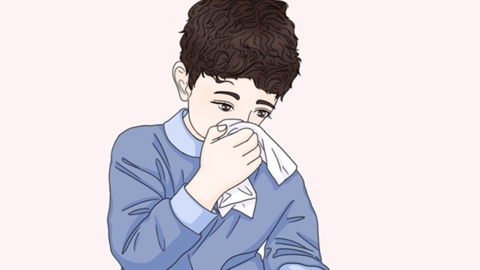How to treat nasal polyps in children
Generally, nasal polyp hypertrophy in children may be caused by factors such as growth and development, environmental adaptation, allergic rhinitis, chronic sinusitis, or cystic fibrosis. Treatment options include general care and medication, under a doctor's guidance. If symptoms persist, prompt medical attention is recommended. Detailed explanations are as follows:

1. Growth and Development Factors
During growth and development, children's nasal mucosa and related tissues are constantly changing and growing. If there is temporary disharmony in nasal development, such as excessive proliferation of mucosa in areas like the middle nasal passage or sinus openings, it may lead to manifestations resembling nasal polyp hypertrophy. No specific treatment is needed, but attention should be paid to balanced nutrition and sufficient sleep to support normal growth and development.
2. Environmental Adaptation
Children's nasal mucosa is relatively delicate. When suddenly exposed to irritating environments, such as prolonged contact with high-concentration pollen or dust, the nasal mucosa may exhibit a compensatory hyperplastic reaction, to some extent mimicking nasal polyp hypertrophy. Usually, no treatment is required. It is important to avoid exposing children to known irritants, and wearing a mask in poor environmental conditions is recommended.
3. Allergic Rhinitis
Allergic rhinitis may occur after children are exposed to allergens such as dust mites or animal dander. Immune cells in the nasal mucosa release inflammatory mediators like histamine, causing recurrent nasal mucosal congestion and edema. Long-term inflammation may lead to nasal polyp hypertrophy, often accompanied by symptoms such as nasal itching and sneezing. Treatment may involve medications such as loratadine syrup, montelukast sodium chewable tablets, and budesonide nasal spray, as directed by a physician.
4. Chronic Sinusitis
Chronic sinusitis often results from repeated episodes of acute sinusitis that were not completely resolved. Long-term inflammation within the sinuses causes mucosal congestion and edema, eventually leading to polypoid changes and nasal polyp hypertrophy. Symptoms may include nasal congestion, runny nose, and headache. Symptomatic relief may be achieved with medications such as mometasone furoate nasal spray, eucalyptol enteric-coated capsules, and "BiYuan Tong Qiao" granules, under medical supervision.
5. Cystic Fibrosis
Cystic fibrosis is an autosomal recessive genetic disorder. Gene mutations lead to dysfunction of chloride ion channels in the body, causing abnormally thick respiratory secretions that are difficult to expel. Chronic nasal and sinus obstruction leads to inflammation and promotes the formation and enlargement of nasal polyps. Symptoms may also include chronic cough, sputum production, breathing difficulties, and delayed growth and development. Treatment options may include medications such as cefixime capsules, amoxicillin-clavulanate potassium dry suspension, and ribavirin capsules, as advised by a physician.
In daily life, maintaining indoor cleanliness, reducing allergens, ensuring proper nasal hygiene (avoiding digital nose picking), and encouraging appropriate physical activity to enhance immunity are recommended.






